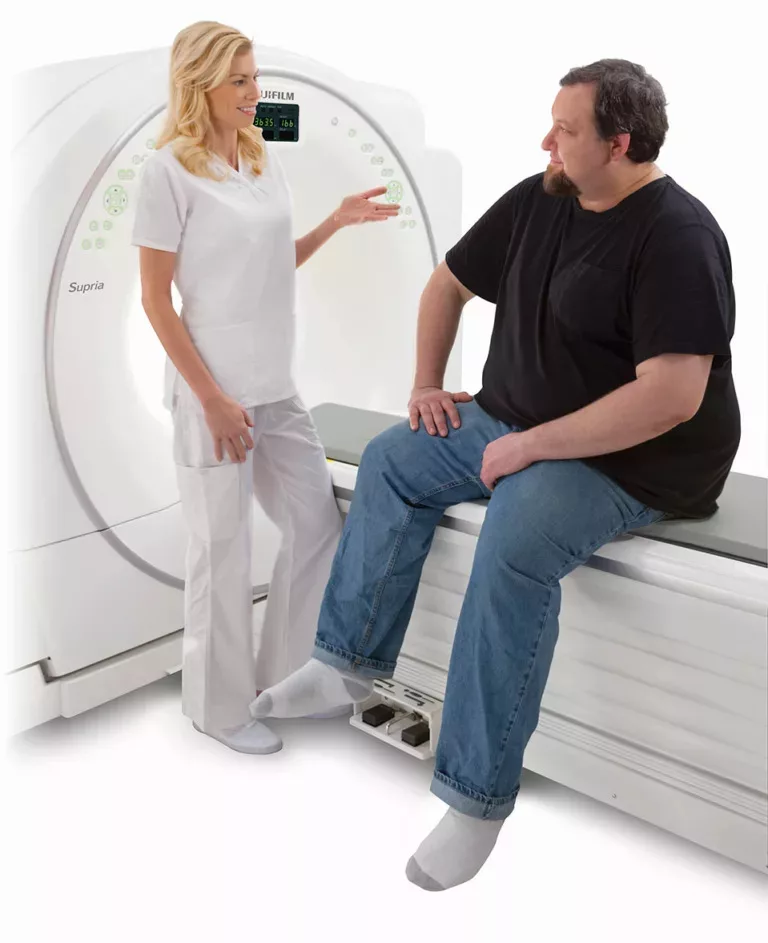
In recognition of April being Stress Awareness Month, MH Imaging is shedding light on the significant impact stress can have on digestive health. Many individuals experience digestive distress as a result of stress, and it’s essential to understand how to diagnose and manage these issues effectively. CT scans of the abdomen and pelvis play a crucial role in diagnosing stress-induced digestive problems, providing valuable insights for patients.
The Connection Between Stress and Digestive Health
Stress acts as a formidable disruptor within our bodies, particularly targeting our digestive system with a precision that can often leave us in discomfort. The biological response to stress involves the release of hormones that can unbalance the gut’s microbiome, setting the stage for a range of digestive woes. Conditions such as irritable bowel syndrome (IBS), gastritis, and even exacerbations of acid reflux can arise, are tethered closely to our body’s stress response. Understanding this link is crucial for identifying the root cause of digestive distress and paves the way for effective treatment strategies.
Understanding the Role of CT Scans in Diagnosis
CT scans, utilizing their advanced imaging capabilities, serve as a critical diagnostic tool for unveiling the complexities of stress-induced digestive issues. These high-resolution images grant healthcare professionals a unique view into the abdomen and pelvis, highlighting even the subtlest signs of distress or irregularity. From detecting inflammation that could signal an underlying condition to revealing structural abnormalities, CT scans offer a comprehensive assessment, ensuring an accurate diagnosis.
Symptoms to Watch For: When to Seek a CT Scan
Navigating the symptoms indicative of stress-induced digestive issues is a critical step toward safeguarding your health. If you find yourself frequently battling with abdominal discomfort, experiencing unexplained bloating, or enduring bouts of diarrhea and constipation, it’s essential to take note. These symptoms, along with persistent nausea, can serve as clear signals that your digestive system may be under duress, potentially exacerbated by stress. When such conditions persist and interfere with your daily life, seeking the expertise of a healthcare professional becomes paramount.
Steps Toward Managing Stress-Induced Digestive Issues
Embarking on a journey to alleviate stress-induced digestive concerns involves embracing a multi-faceted strategy focused on nurturing both mind and body. Delving into practices that calm the mind, such as meditation, engaging in gentle yoga flows, or dedicating moments to deep breathing can significantly diminish stress levels. A balanced diet, rich in fiber and low in processed foods, coupled with adequate hydration, plays a pivotal role in maintaining a healthy digestive system. Incorporating regular physical activity into your routine not only strengthens your body but also serves as a natural stress reliever. By utilizing a combination of these stress-relieving methods, you can greatly reduce your risk of experiencing stress-related digestive issues.
Stress is something that we all experience at some point in our lives. It’s vital to recognize and address the interplay between stress and our digestive health. The insights offered through advanced diagnostic tools, such as CT scans, empower us to take informed steps toward healing and managing the consequences of stress on our bodies. At MH Imaging, we stand ready to assist you with state-of-the-art diagnostic solutions, ensuring a personalized approach to your healthcare needs.
Let MH Imaging be your partners in navigating your stress-related digestive distress. Schedule your CT scan today.






